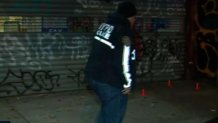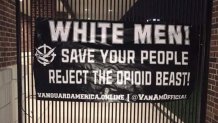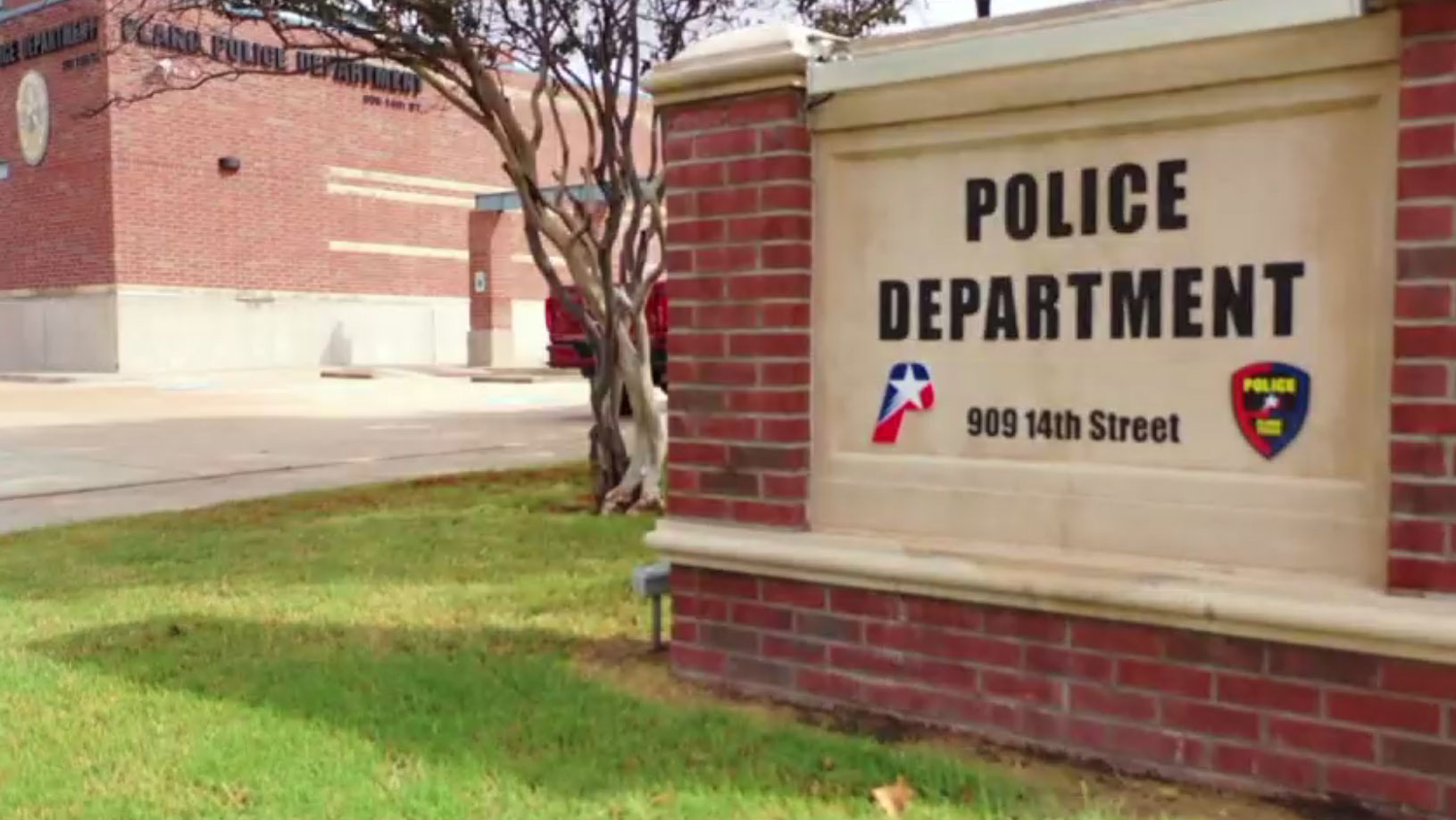Southern Methodist University campus police are investigating "abhorrent" signs and a banner hung on the school’s campus over the weekend by a white supremacist group identifying itself as Texas Vanguard.
The group, which was named on the flyers, also posted photos online of masked men giving the Nazi salute while standing in front of one of the banners, which read: “White men save your people. Reject the opioid beast.”
Also posted were signs warning about opioid deaths in the white community and another sign denouncing “Gay Pride.”
The pictures were tweeted with the caption, “We had a great night at @SMU.”
SMU said Monday "the group has targeted other universities in Texas for its abhorrent messages."
The Dallas university on Monday afternoon released photos taken from surveillance video of five people investigators believe may be behind the signs. They're hoping someone can help identify the men.

The video, recorded at Park Cities Plaza, shows five individuals exiting a dark-colored, full-sized pickup truck at about 11:20 p.m. Saturday. Two individuals later were recorded carrying a banner at about 12:20 a.m. Sunday.
Anyone with information concerning the identity of the individuals, the pickup or the fliers is asked to contact SMU Police at 214-768-3333. Information also may be reported anonymously through the SMU Police Department’s Silent Witness Program by calling 214-SMU-2TIP or online at smu.edu/2TIP.
Local
The latest news from around North Texas.
SMU President R. Gerald Turner sent a letter to students and faculty about the signs.
"While SMU strongly supports freedom of speech and expression, the outside group featured on these signs promotes an abhorrent message that is opposite to SMU values," Turner said.
[NATL] Top News Photos: Pope Visits Japan, and More
Turner said the signs were not authorized and SMU police initiated an investigation.

"Any person who hangs unauthorized signs or defaces University property is subject to prosecution,” Turner said. “Any campus community member found responsible for violating SMU policy will be held accountable under the University’s conduct review process.”
An SMU spokesperson said the people responsible for the signs may be subject to a criminal tresspass warning, if it's a first offense. Individuals who have already received a criminal trespass warning from SMU and return to campus may be charged with criminal trespass.
SMU Student Sen. Reuben Beckett responded to the group tweeting, “Cowards. Don’t come back to our campus. You are not welcome.”
Other students told NBC 5 they were appalled.
"It was horrific. That was something terrifying and I would hope that this kind of judgmental and crude behavior would not be tolerated," said Lauren Floyd, sophomore. "I’ve gotten to meet a lot of people here who are from different cultures and backrounds that I cherish very, very deeply, and the fact that they have to come to school and see that kind of just trash posted on campus is really heartbreaking."
"It obviously makes me mad that people think that, that people think that white people are somehow better than the rest of us," said Gabriela Ponce, sophomore.
Arthur Fleming, with the Dallas NAACP, said the group is using the signs, banners and publicity to "galvanize everybody to move their cause forward."
Rafael McDonnell of Resource Center, an LGBTQ community center in Dallas, said SMU should continue to condemn messages of hate to assure students they are safe.
"It goes to a pattern. This group is trying to stir up dissent and trouble and if we are aware of it then we know how to fight back," said McDonnell.
A student journalist who broke the story about the signs said it was clear the group was looking for attention. Kylie Madry, Editor-in-chief of the SMU Daily Campus student newspaper, said she began hearing about the signs early Sunday morning. By Sunday night, Madry easily found photos of the signs on Twitter after the group tweeted them to SMU.
"Everybody expected them to be much more secretive about their actions," said Madry. "We're seeing that these guys are feeling emboldened and they're feeling willing to post these things online for the attention."
"At this point, I'm almost desensitized to it ... It was less shock and more, 'What can we do to change now moving on, moving forward,'" said Tahj Roy, sophomore.
NBC 5's Kevin Cokely contributed to this report.



